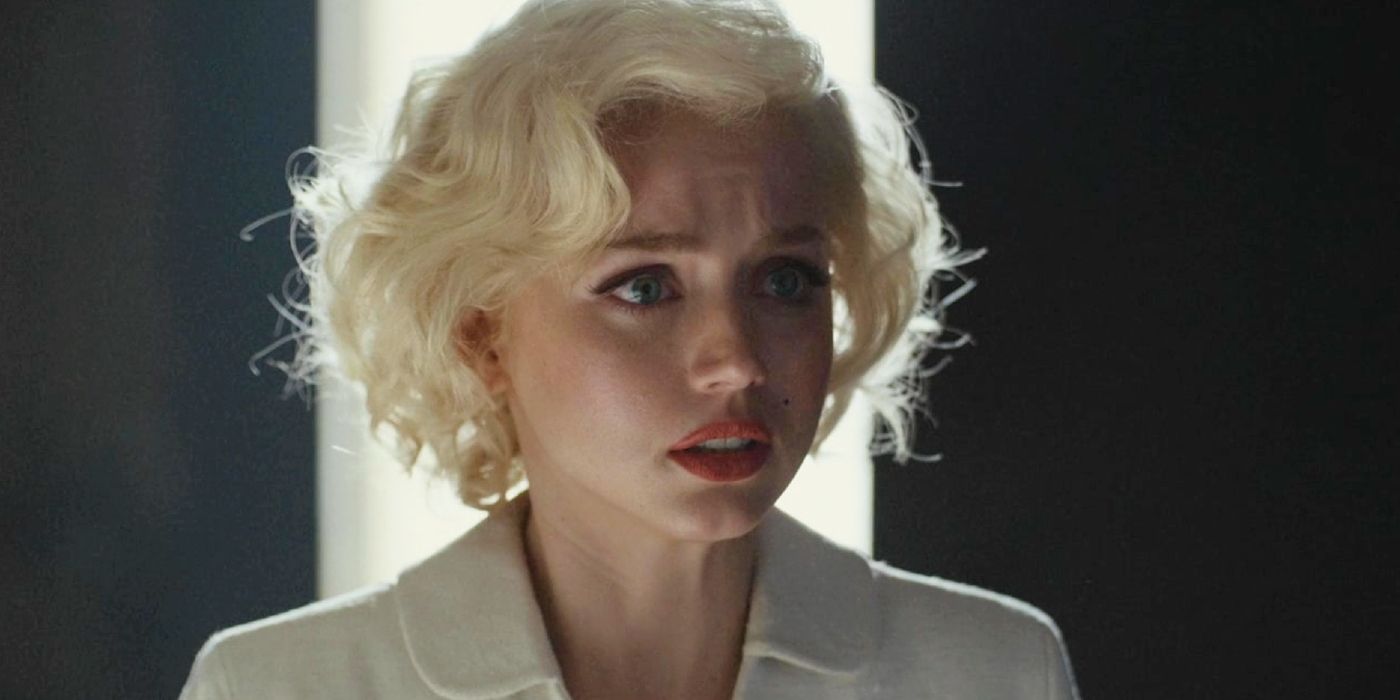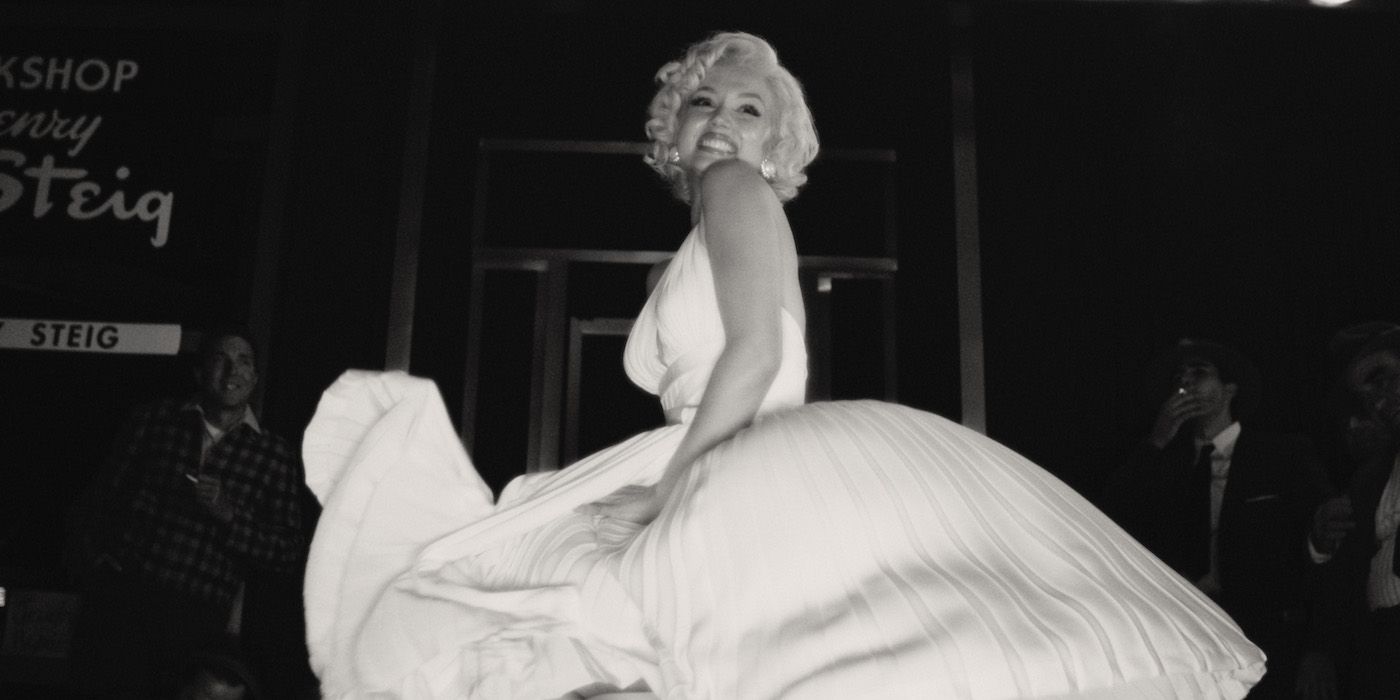Blonde star Ana de Armas reflects on the negative reception to the Andrew Dominik drama that chronicles the life and death of Marilyn Monroe. Based on the book by author Joyce Carol Oates, Blonde was released on Netflix last September, offering a fictionalized account of the late starlet's personal life and career. The film was met with mixed to negative reviews, with most critics agreeing that, while de Armas' performance is impressive, the film itself leaves much to be desired.
In a recent interview with THR, de Armas reflects on the poor reception to Blonde and its depiction of Monroe. While not necessarily dismissing criticism of the film, the actor does stress that it was never Dominik's intention to make a crowd-pleaser and that one of the key tenets of Blonde is its critique of the exploitative nature of Hollywood. Check out de Armas' full comment below:
"When we premiered the movie in Venice, or San Sebastián, [the reaction was much warmer than the reception was in the U.S.]. Of course, the reaction that gets the most attention is the one in the U.S., but that wasn’t the whole experience. It’s hard to hear these reactions, but you can always go back to what you experienced, and why you did it, and the reasons why you were attracted to the project. That is not going to change. You have the director, and you have other actors that you can always talk to. As hard as it is to hear when people don’t like your film, it is what it is. It was not a movie that was made to please people or to make people like it. It is a hard movie to watch.
I don’t think the movie speaks badly about her a bit. I think it’s the opposite. I think it speaks badly about the environment and the industry, and that’s a hard pill to swallow sometimes for other people in the business. I feel like the movie also makes the audience feel like participants. We contributed at the time, and we still contribute, in the exploitation of actors, people in the public eye. We, the audience, do this. And I feel like it’s possible that some people have felt like [someone] pointed a finger at [them]."
Why Blonde Was So Controversial
Much of the controversy surrounding Blonde actually first began with Oates' book, which offered a fictionalized accounting of many events in Monroe's life, some of which were highly traumatic. The movie first made waves when it was announced that it would be rated NC-17, a rating above R reserved typically for movies with strong sexual content. Like the book, Blonde features several instances of Monroe being sexually exploited or assaulted, with one particularly graphic rape scene.
The backlash to the film wasn't so much directed at these graphic scenes, in particular, but the way these scenes fit into the larger Monroe story being told. The starlet essentially has no agency in Blonde and is treated poorly from the movie's opening moments. From start to finish, Blonde seems solely focused on how Monroe was used, abused, and sexually exploited instead of giving the actor any real power in her life.
Oates, Dominik, and de Armas would seemingly argue that this exploitation is the entire point, but the negative reviews counter that Blonde, as a result, is rather one-note and not actually a balanced or thoughtful portrayal of Monroe's real life. While Blonde may not have been the critical darling that some were expecting, de Armas does completely transform for the role and her performance is powerful, even if the film as a whole lets her down.
Source: THR


